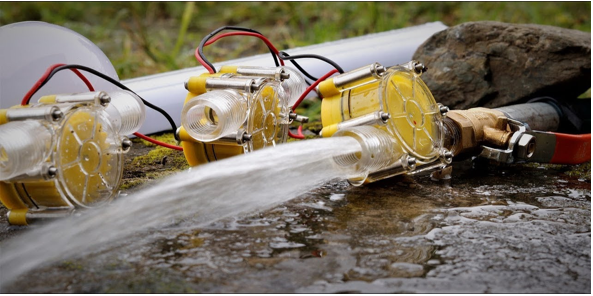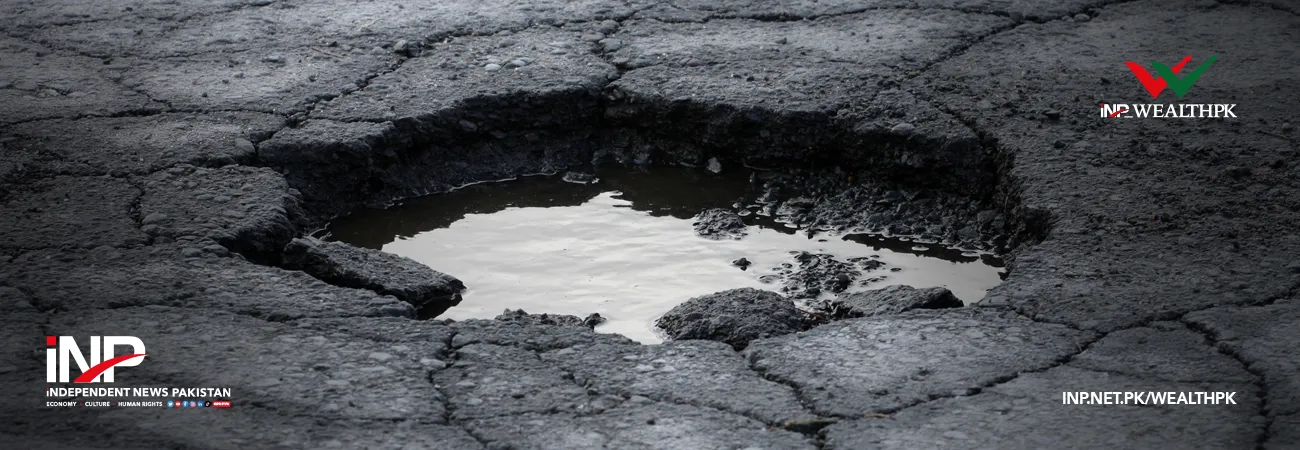INP-WealthPk
Amir Saeed
Community energy initiatives in Pakistan are essential for driving economic growth, empowering local communities, and enhancing energy access, while fostering entrepreneurship and sustainable development.

Talking to WealthPK, Dr Rihab Khalid, Research Associate at the Modern Energy Cooking Services (MESC), Loughborough University, UK, highlighted that Pakistan faces significant energy challenges, with approximately 12 million people lacking access to electricity. “The country's energy generation is heavily reliant on fossil fuels, which account for about 62% of total electricity production.” She emphasised the transformative role that hydropower, particularly mini and micro hydropower projects (MHPPs), can play.
“These initiatives have been operational since the early 1980s and have successfully provided reliable electricity to remote areas, positively impacting local livelihoods and economic activities.” She further pointed out that the installation of over 356 small hydropower units in Khyber Pakhtunkhwa has provided electricity to more than 2.5 million people, enabling small industries, improving educational facilities, and enhancing healthcare services. “Access to reliable electricity fosters entrepreneurship and job creation, which is crucial for economic development.”
“Improved electricity access correlates with better educational outcomes and poverty alleviation, particularly empowering women through increased opportunities for home-based businesses and vocational training programmes,” she underscored.“Moreover, community energy initiatives emphasise participatory governance, engaging local populations in decision-making processes. This approach not only fosters a sense of ownership but also ensures that projects are tailored to meet specific community needs, enhancing social cohesion and trust among members,” Rihab said.
However, she highlighted that challenges remain regarding equitable participation; some community members may feel marginalised, highlighting the need for inclusive governance structures. Talking to WealthPK, Aatizaz Hussain, a development economic researcher at National Defence University (NDU) Islamabad, pointed out several challenges that community energy projects face in the country. “Technical issues often arise from inadequate assessments during project planning and insufficient monitoring post-implementation.
Many MHPPs have become non-operational due to these shortcomings, underscoring the need for robust technical support and capacity-building within communities.” “Financial constraints also pose significant hurdles for initiating and sustaining these projects. Securing initial capital investment is often challenging for communities looking to establish their own energy systems,” he said. Hussain advocated for innovative financing models that incorporate local stakeholders to alleviate these challenges while promoting community involvement.
To maximise the benefits of community energy initiatives in the country, Hussain stressed the importance of prioritising decentralised energy systems within national energy strategies. “This includes providing technical assistance for project development and ensuring accessible funding mechanisms for local communities. Fostering partnerships between government entities, NGOs and local organisations can enhance resource sharing and knowledge transfer.” “Furthermore, integrating gender equity into energy policies is essential for empowering women.
Training programmes aimed at building technical skills among women can facilitate greater participation in the renewable energy sector.” “Community energy initiatives represent a promising pathway towards economic growth and empowerment in Pakistan. By harnessing local resources and engaging communities in the development process, these projects can significantly improve living standards while promoting sustainable practices. However, addressing existing challenges related to governance, technical capacity and financial sustainability is crucial for realising their full potential,” the NDU economic researcher emphasised.
Credit: INP-WealthPk













